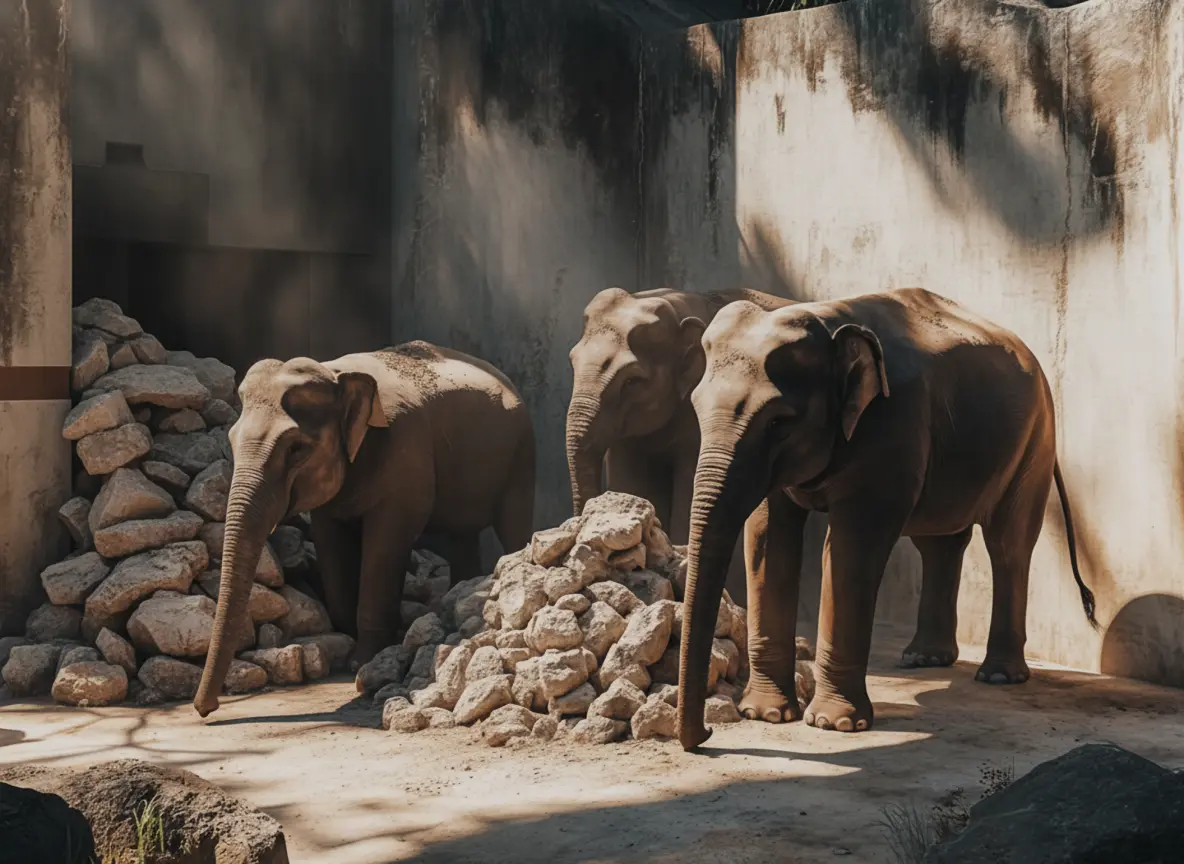By sunrise, the elephant enclosure looked like a construction site hit by a storm. Massive logs, boulders, and uprooted branches were piled into a barricade against the far corner, so high the keepers couldn’t see over it. And behind that wall, the herd stood trembling, guarding something no one understood.
Visitors were evacuated before the gates even opened. Rhinos paced their pens, flamingos clumped together uneasily, and the giraffes refused to come indoors or out, as if every species could feel the tension radiating from the elephants. Every few minutes, the matriarch let out a low, warning rumble that chilled the staff.
Security tape fluttered in the wind while keepers and engineers crowded near the enclosure, whispering theories. Was it fear? Illness? Aggression? No one could explain why gentle giants who rarely panicked were now acting like soldiers fortifying a battlefield. And the most unsettling part was simple, the elephants wouldn’t let anyone near that corner.
Maria had waited years for a chance like this. After internships at sanctuaries, long volunteer shifts, and more coursework than she cared to remember, she finally stood inside Grand Valley Zoo as an official elephant keeper, her first full-time position.
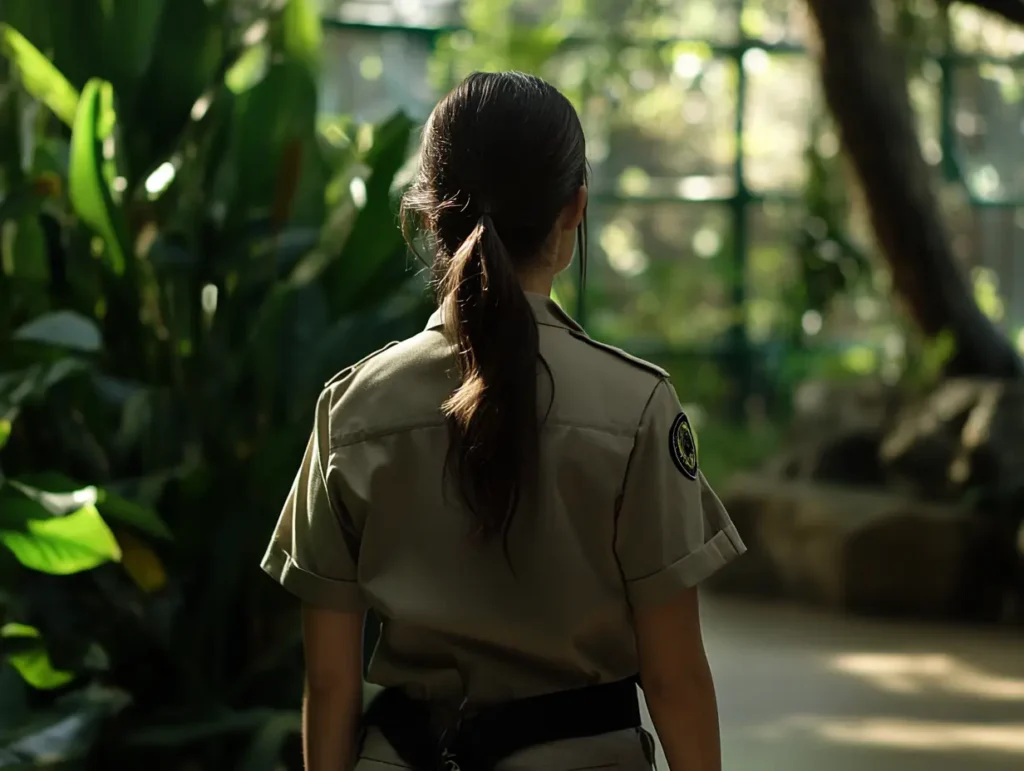
The mixture of hay, warm soil, and distant animal chatter felt like the scent of a new beginning. And she fit into the job more easily than she expected. The team liked her. The routine felt natural. Most importantly, the elephants accepted her.
The matriarch, Lila, warmed to her almost immediately. By day three, Lila was already approaching Maria for treats and leaning in during health checks. Other keepers noticed. “She trusts you,” her supervisor said one afternoon.
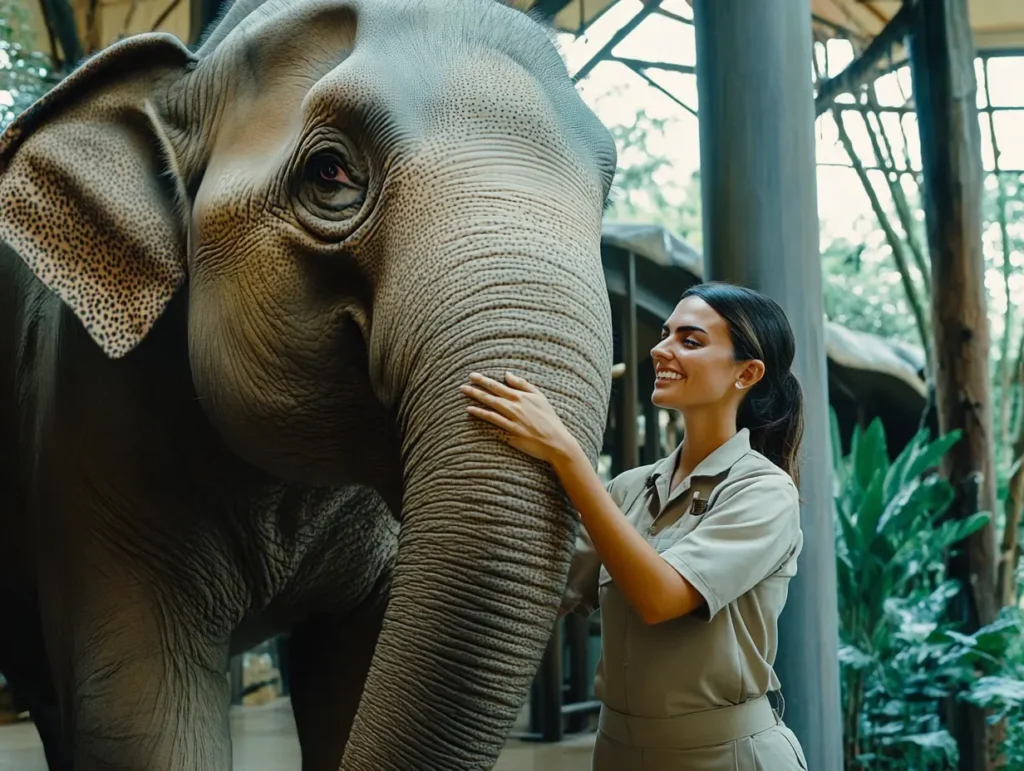
“That’s not something you can train into an elephant. They either choose you or they don’t.” Maria hid her smile, but the compliment stayed with her the rest of the day. She’d always believed she understood elephants, their intelligence, their emotional depth, their sense of family. Now she felt it, every day, as the herd moved comfortably around her.
The weeks blurred together in the best way: morning feedings, enrichment setups, educational talks for school groups, late-night check-ins where the elephants dozed peacefully under the barn lights. Maria went home tired, but it was a kind of tired she welcomed.

It meant she was doing exactly what she had always hoped to do. On her eighteenth day, the evening routine passed smoothly. The zoo quieted as guests drifted out, leaving behind the soft hum of pumps and the murmur of distant animals settling in for the night.
Maria finished logging the last of her notes and headed out for the final headcount before lockup. That was when she noticed something unusual. The elephant calves were splashing in the shallow pool. Two females browsed calmly near the hay rack. The elephant bull was stripping bark from a log.

But Lila was separated from them, positioned near the far back corner of the enclosure. She wasn’t resting. She wasn’t foraging. She wasn’t acknowledging the others at all. Instead, she stood completely still, her body angled sharply toward a specific patch of ground.
Her ears were slightly raised, her trunk hanging motionless, alert, but not frightened. Focused, in a way Maria had never seen from her before. “Lila?” Maria called softly as she approached the fence. “What are you looking at?”
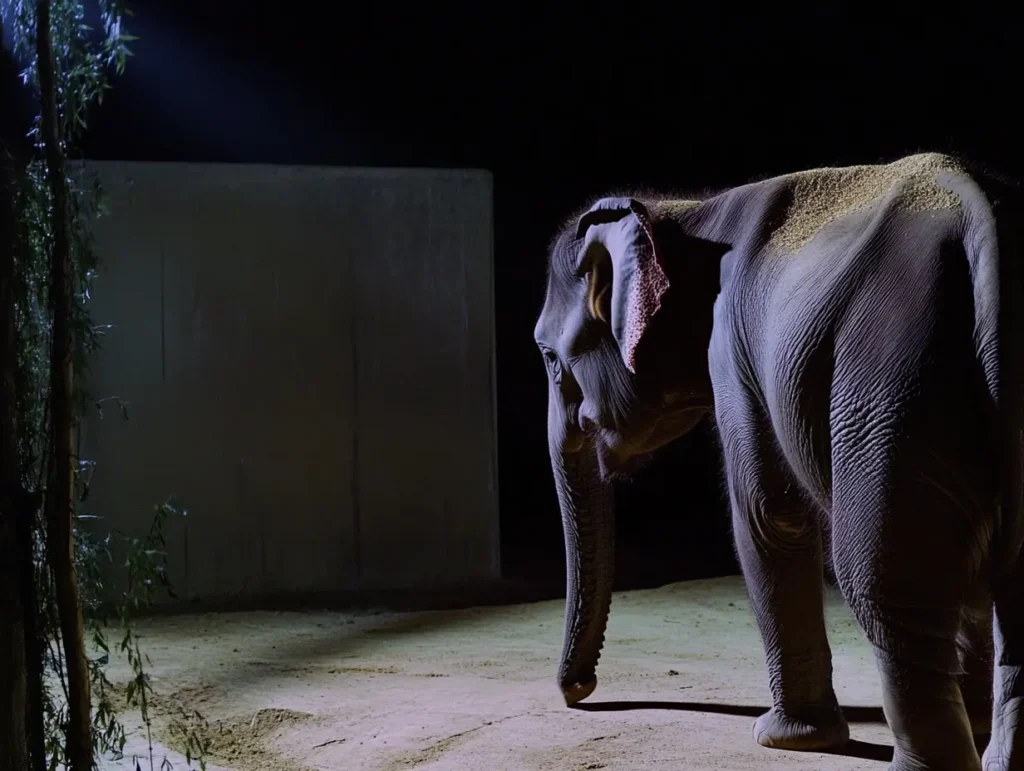
No response. Lila didn’t flick an ear or shift her stance. She kept her attention fixed on that corner as if she were waiting for something to move… or listening for something Maria couldn’t hear. Maria checked the ground from a distance.
No snakes, no injured wildlife, no loose wiring. The cameras overhead showed nothing unusual. The other elephants didn’t seem aware of anything at all. But Lila stayed rooted, eyes locked, posture tense. A small thread of unease wound its way through Maria’s chest.
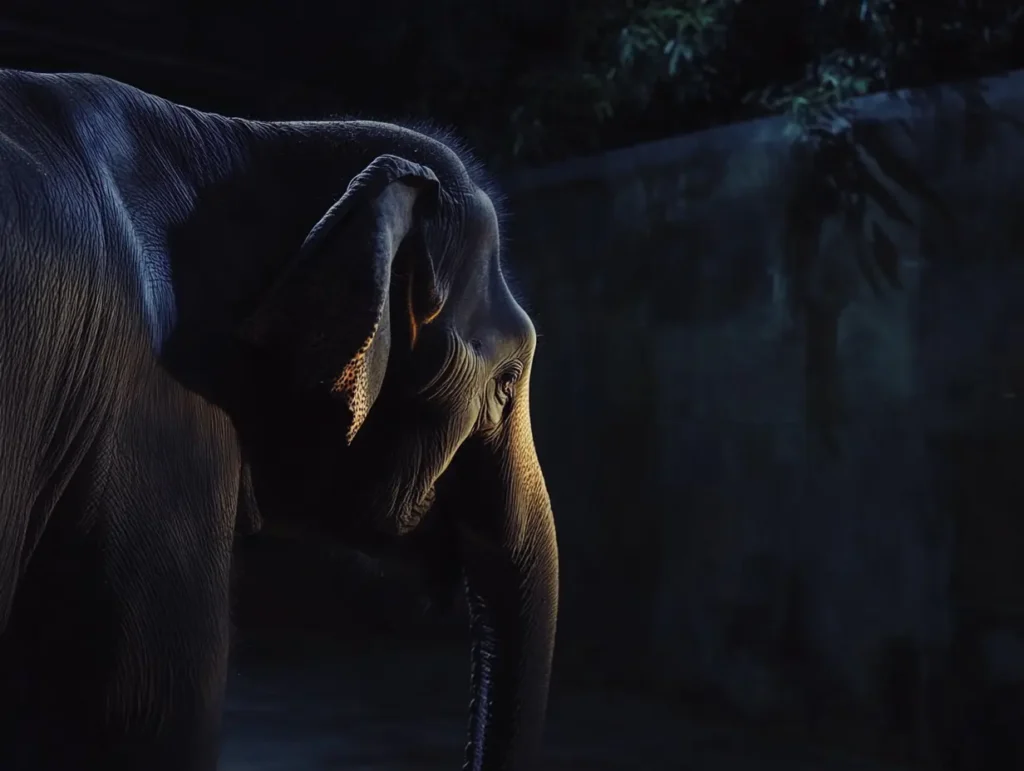
She’d seen elephants act wary before, toward storms, toward unfamiliar scents, but this felt different. Too deliberate. Too silent. She made a note to monitor Lila first thing in the morning. But as she walked away, Maria couldn’t shake the feeling that this wasn’t just a passing mood.
Whatever had captured Lila’s attention… it had started tonight. And it wasn’t letting go. When Maria arrived the next morning, the first thing she did, before clocking in, before grabbing the daily charts, was check on Lila.
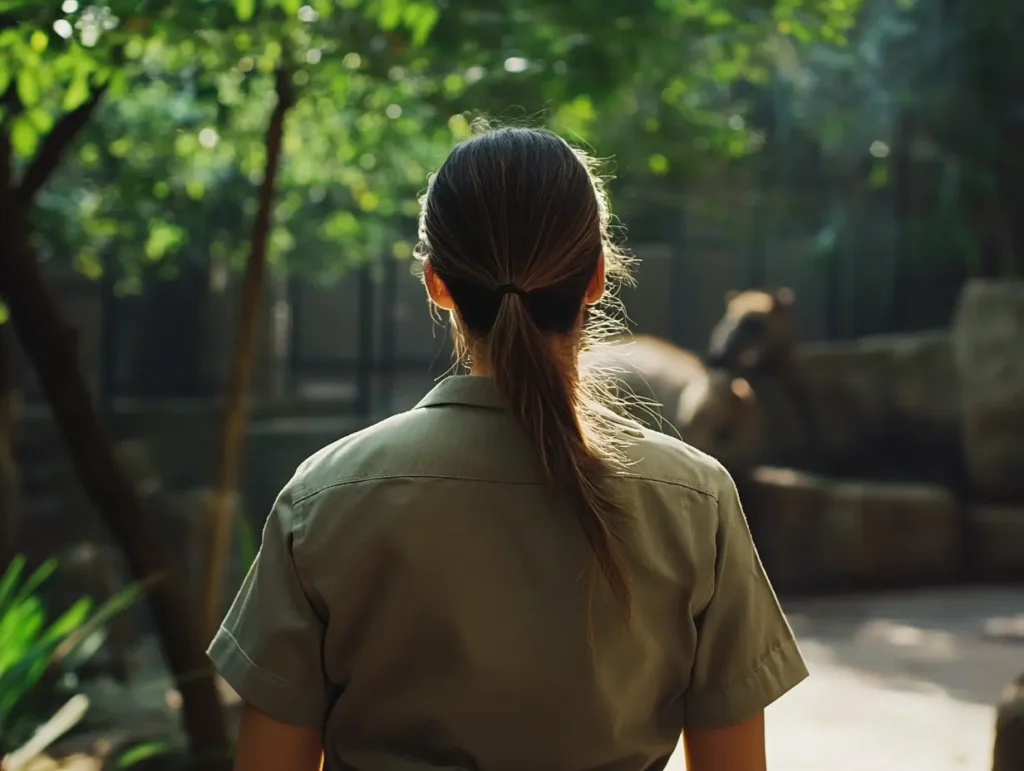
The rest of the herd greeted her the way they usually did: curious trunks reaching toward her pockets, a few playful rumbles, one juvenile nudging her elbow for attention. But Lila wasn’t with them. She was back in the same corner as the night before.
Same posture. Same stillness. Same unwavering stare at the same patch of ground. Maria paused with her keys halfway to the gate latch. “Okay… that’s not a coincidence,” she murmured. She entered the habitat slowly, not wanting to startle the others.
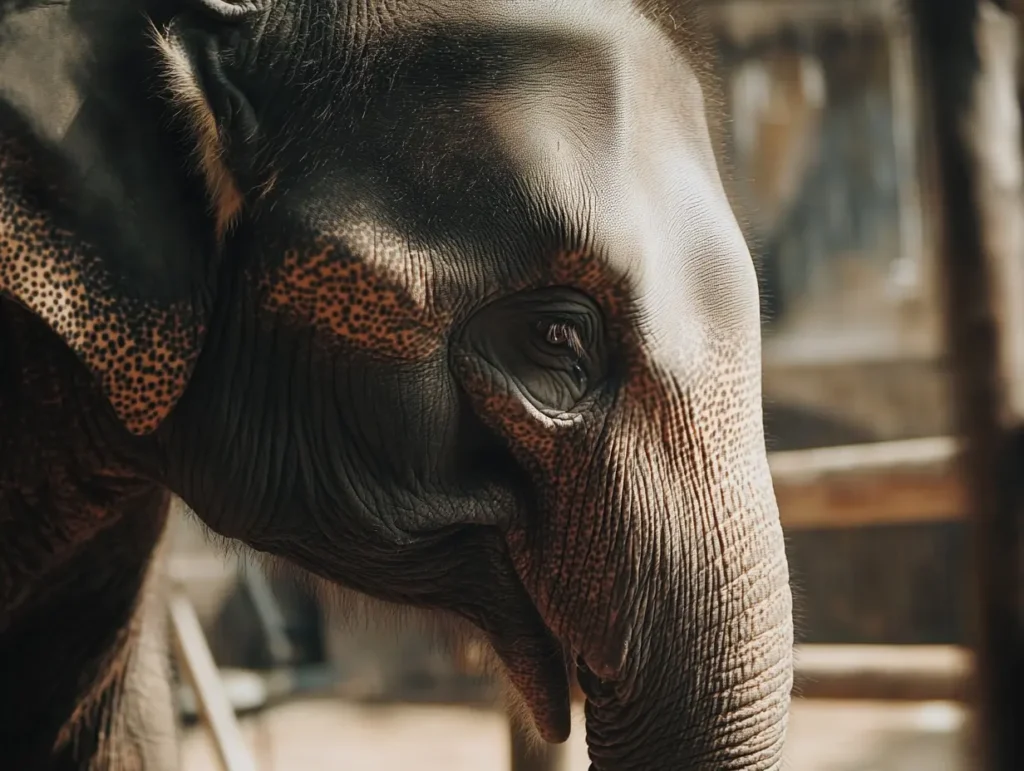
The elephant bull approached her first, chuffing softly, nudging her arm. He seemed relaxed enough, but he didn’t go near Lila. None of them did. It was as though an invisible line had been drawn around that corner.
The others gave the space a respectful distance, glancing that way only occasionally, never stopping long. Maria stepped closer. “Lila? You with me?” Nothing. Lila’s entire focus remained fixed on the ground. Her ears twitched once, subtle, not in irritation, but in concentration.
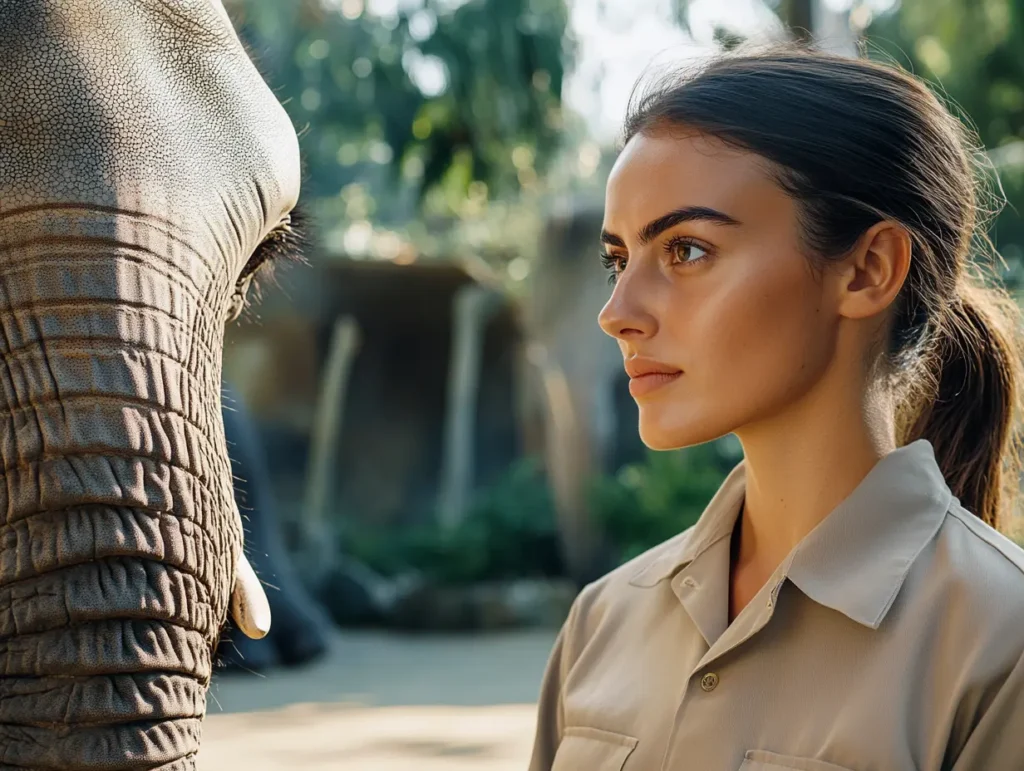
Maria crouched, brushing her hand across the soil. It felt the same as anywhere else, dusty, cool, undisturbed. No disturbed earth, no burrows, no air escaping from pipes beneath. She checked the fencing, the irrigation line, even the shade structure overhead.
Everything was normal. Yet Lila remained locked in that stance. Across the walkway, a family watched curiously. “Is she okay?” the mother asked. “Probably just zoning out,” Maria replied with a practiced smile, though she didn’t believe it. “Elephants have their moods.”
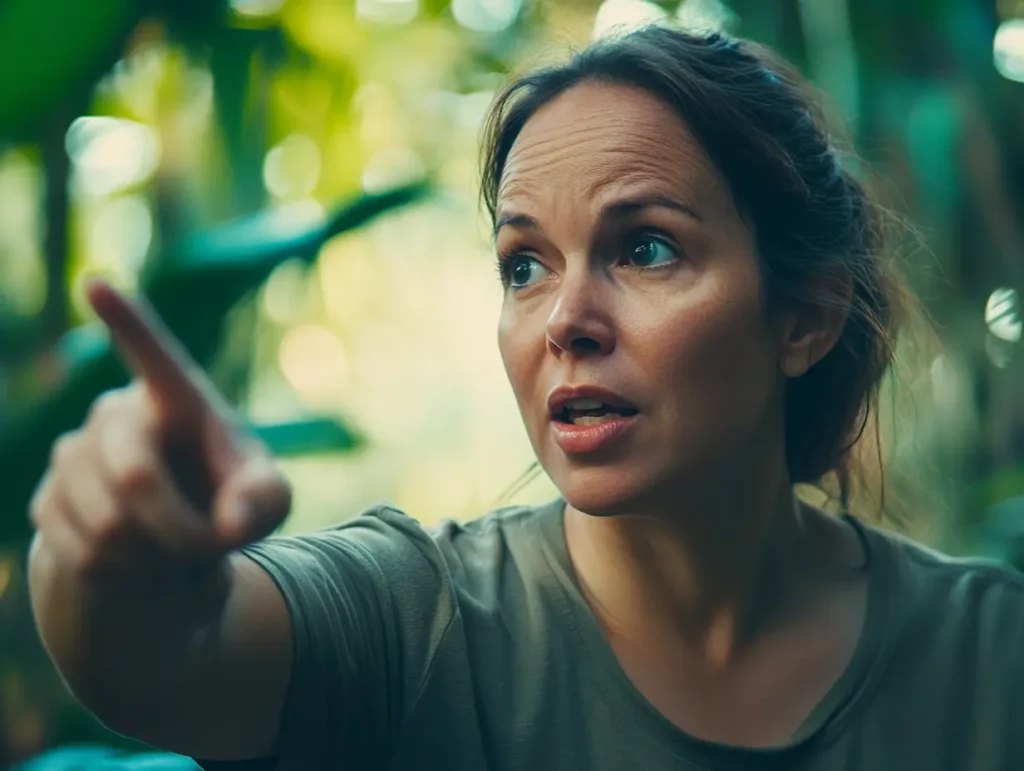
By mid-afternoon, even visitors had begun to notice. A pair of teenagers took videos, whispering things like: “Why is she staring like that?” “Dude, she hasn’t blinked in forever.” Maria tried not to let it get to her, but she caught herself checking the time more often than usual, hoping for any sign that Lila would return to normal.
She didn’t. By closing time, Lila still hadn’t eaten. She hadn’t dusted or socialized. She hadn’t even followed the herd when they were called in for evening checks. It took three keepers and half a crate of produce to coax her inside, and even then she kept glancing through the barn doors toward that same distant corner, as if reluctant to leave it unattended.
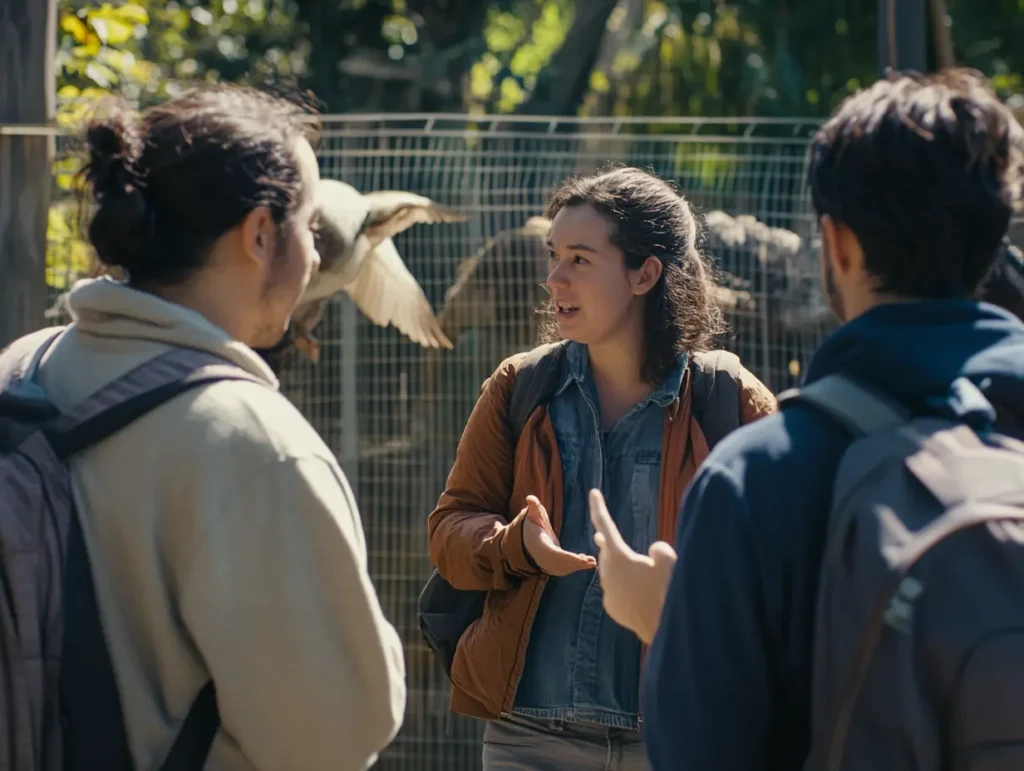
Maria finished her shift unsettled. She sent a message to the vet team to keep Lila on the observation list for the next morning. Maybe a toothache, maybe a brewing infection, maybe something hormonal, there were explanations for everything.
But none of them felt convincing. That night, Maria sat in her apartment with the television on mute, replaying the day in her mind. She had worked with anxious elephants before. She had dealt with injuries, infections, old wounds, herd disputes.

But she had never seen an elephant behave this way. Not fixated on a corner of the habitat. Not ignoring the entire herd. Not spending an entire day listening to something Maria couldn’t hear. She tried to push the thought away. It’s nothing. Just a mood.
But deep down, she had the uneasy sense that something was terribly wrong. Maria tried to shake it off, finishing her rounds and heading home long after sunset. She fell asleep with that strange, lingering image of Lila staring into the corner.

She didn’t have long to rest. Maria’s phone began vibrating at 5:14 a.m. She fumbled for it, heart racing. “Maria?” It was Jared, the overnight security officer. His voice shook. “You need to get here. Now. The elephants are… I don’t know how else to say this—they’re losing it.”
She sat up instantly. “Injured? Fighting?” “No. Worse. They’re moving things. Big things. And they won’t let anyone near the west side of the enclosure. Just—please hurry.” That was all she needed to hear.

Ten minutes later she was tearing through empty pre-dawn streets, hair unbrushed, uniform half-buttoned, her pulse thudding in her ears. By the time she reached the staff entrance, her stomach was tight enough to ache.
Jared met her at the gate, eyes wide. “I swear I’ve never seen anything like this,” he muttered, escorting her in a half-jog toward the elephant habitat. “It started around four. First just pacing. Then they started dragging things.”
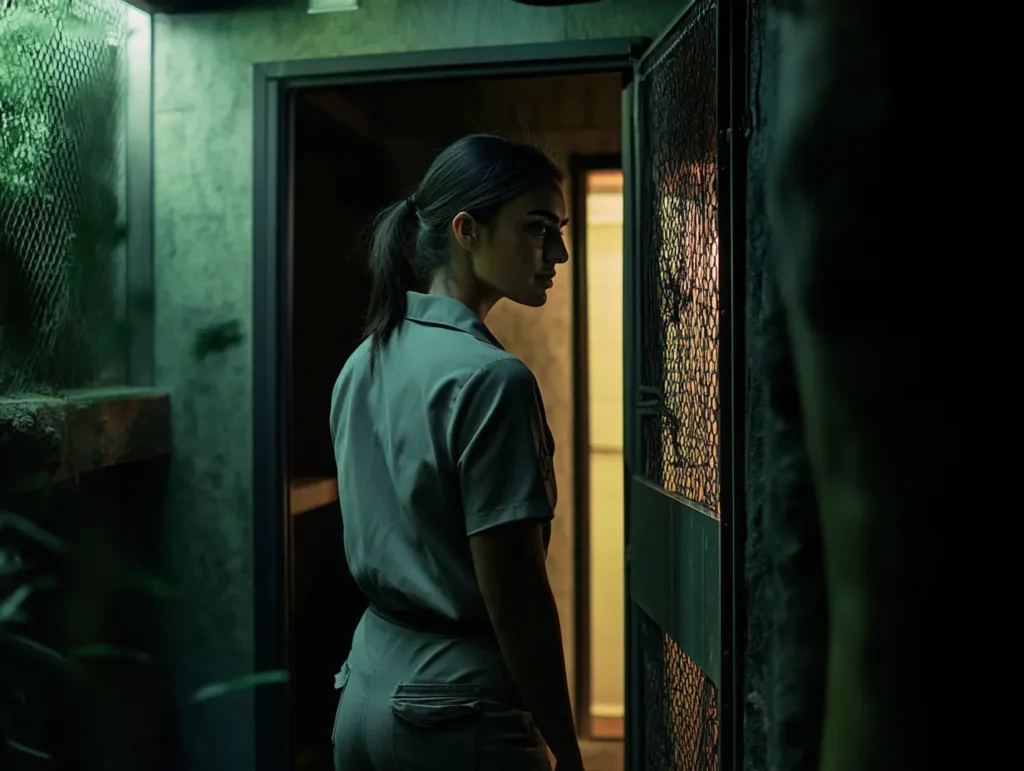
“Dragging what?” Maria demanded. “You’ll see.” She would. And she wasn’t ready for it. The moment she rounded the corner to the viewing deck, her breath caught. The elephants had barricaded an entire section of their enclosure. Not just tossed debris around.
Not random chaos. A constructed wall, as much of a wall as a herd of elephants could build in a few frantic hours. Massive logs leaned across one another like fallen giants. Stones had been rolled and wedged into the gaps.
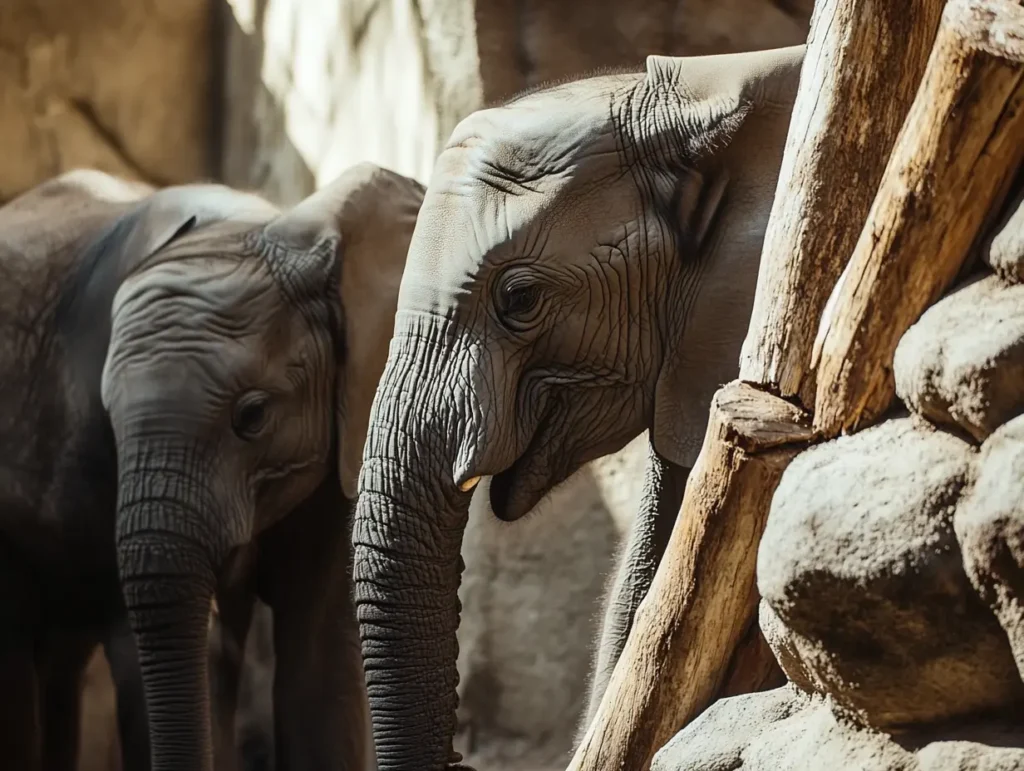
A metal enrichment drum, easily 300 pounds, had been pushed into place like a makeshift anchor. All of it positioned along the west corner. The same corner Lila had stared at yesterday. “What on earth…” Maria whispered.
Inside the enclosure, the herd stood shoulder-to-shoulder, bodies tense, trumpeting anxiously whenever a staff member got too close to the barricaded area. No aggression toward each other. No erratic stampeding.
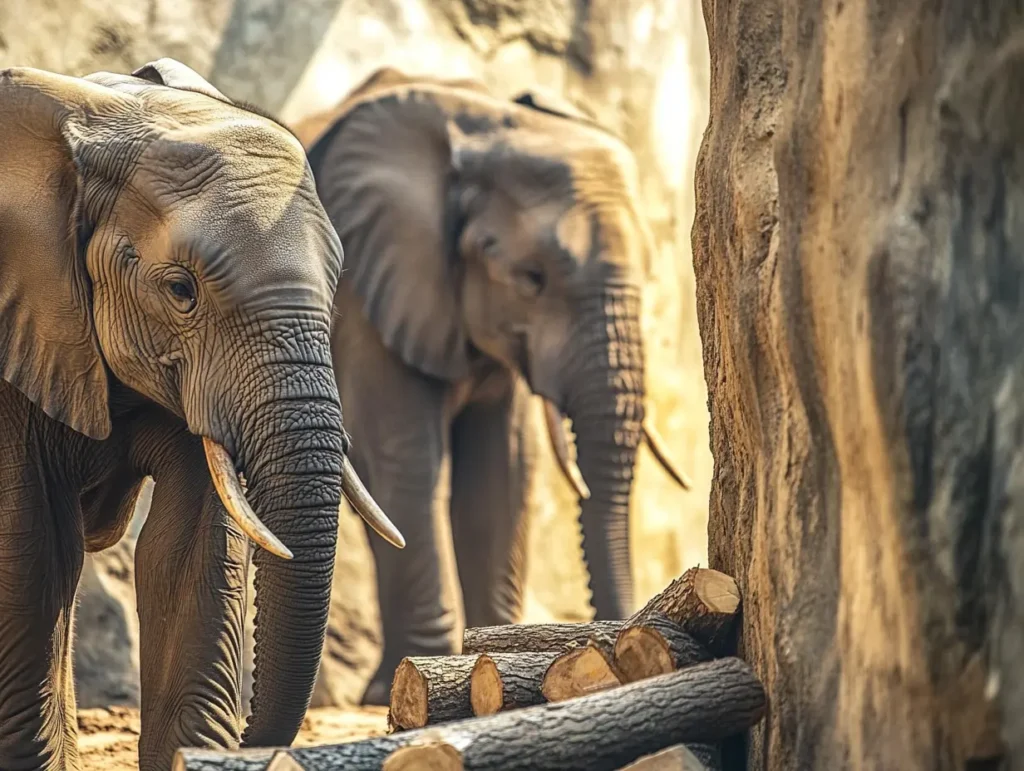
This was defense. A guard line. Lila stood rigid, guarding the barricade like a sentry. Her ears shifted toward the corner, nostrils flaring, as though alert to something no human could detect. Maria’s stomach tightened. “They’ve never done this before?” she asked.
“Not even close,” Jared replied. “We’ve checked the enclosure—nothing’s out of place. But they’re acting like that spot is… dangerous.” Maria leaned in, keeping her tone soft and familiar. “Lila, honey… what’s going on?” The matriarch let out a low rumble: deep, hollow, uneasy.
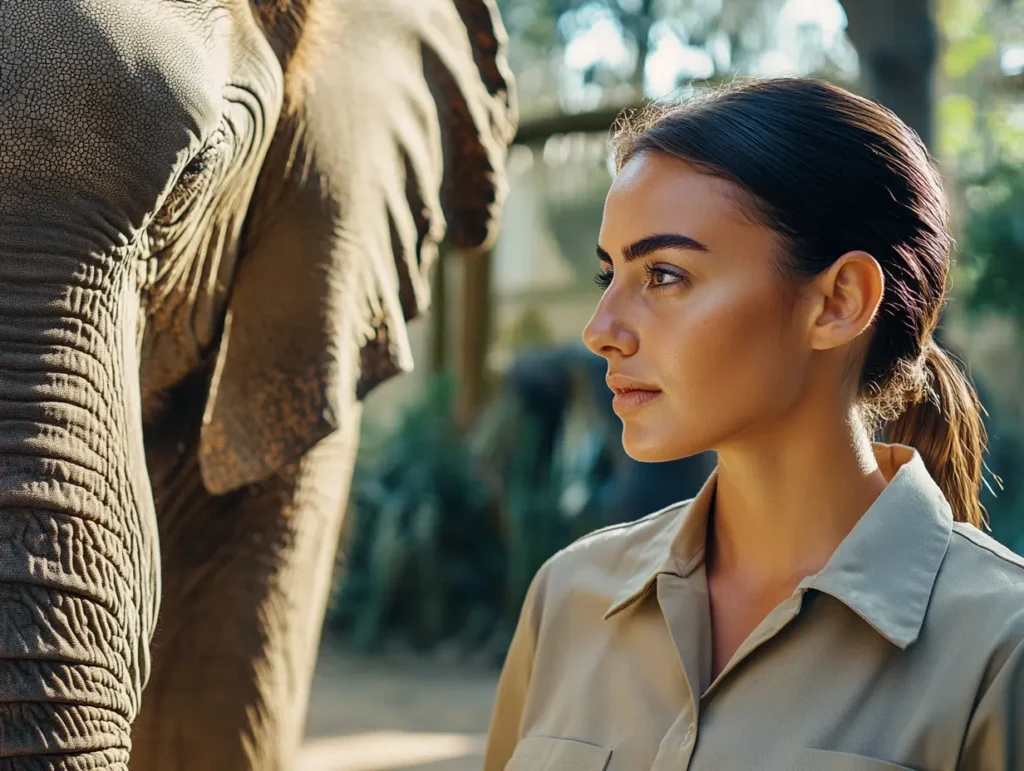
The others echoed it, the sound rolling through the air like distant thunder. Maria felt her skin prickle. This wasn’t just fear. This was instinct, raw, ancient, and certain. “What do you want us to do?” Jared asked, voice tight.
Maria didn’t have an answer. Not yet. But she knew one thing with absolute clarity: The elephants weren’t the problem. They were responding to one. And whatever it was… it was directly beneath that barricaded ground.
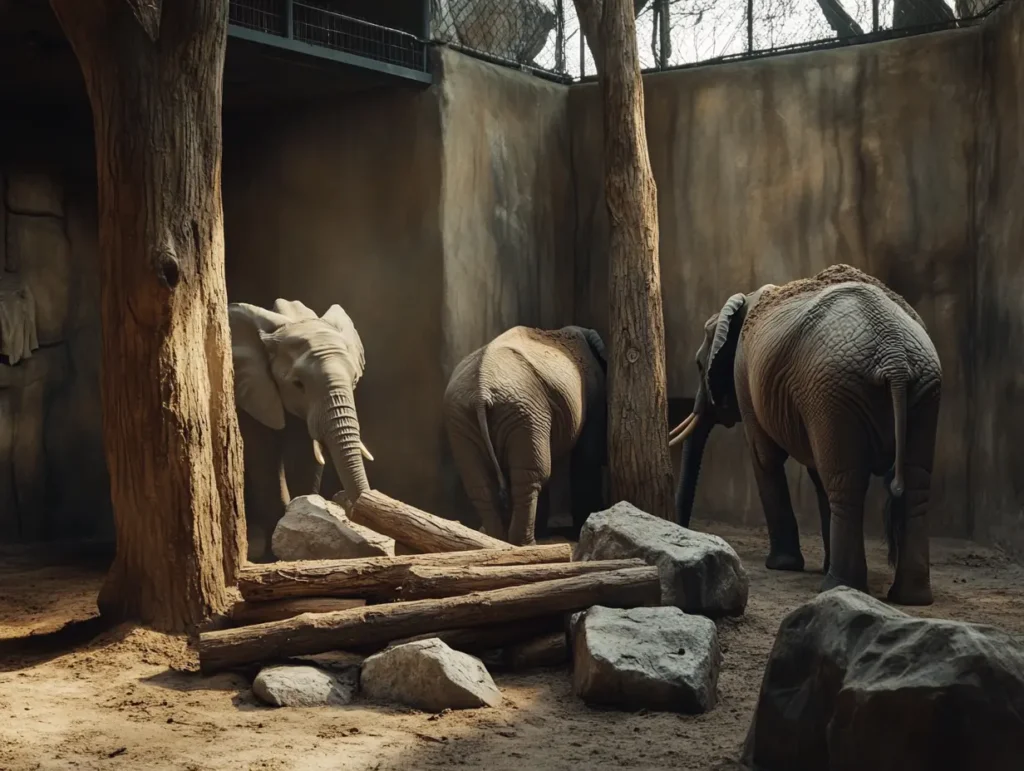
Maria stepped cautiously past the keeper gate, hand resting on the railing as she eased her way inside. “It’s okay, girl,” she murmured. “I’m not here to bother you.” For a brief moment, it seemed Lila would allow her closer. The matriarch’s ears twitched, her massive frame still as stone.
Maria took one more slow step, and Lila suddenly lifted her head high, ears flaring wide, trunk curling upward in a sharp, commanding display. A deep, rolling rumble vibrated through her chest, the kind that meant stop. The kind that meant do not take another step. Maria froze.
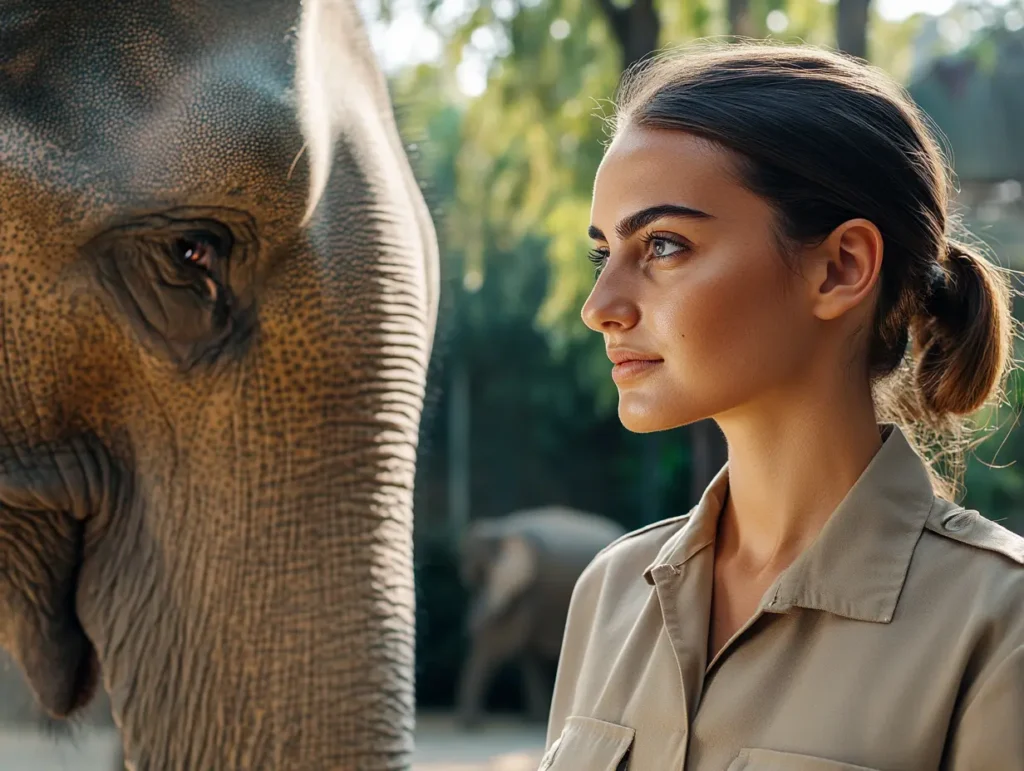
Lila took a single, deliberate stride forward, placing herself squarely between Maria and the barricaded corner. Her trunk lowered, sweeping the ground in a stiff, warning arc. Not a swing. Not a threat of attack. A line drawn in the sand. “I hear you,” Maria whispered, raising both hands slightly and stepping back.
She knew the signs, tension in the shoulders, the rigid tail, the low-frequency growl that wasn’t meant for human ears. This was not aggression. It was prevention. Behind the matriarch, the rest of the herd tightened their formation.
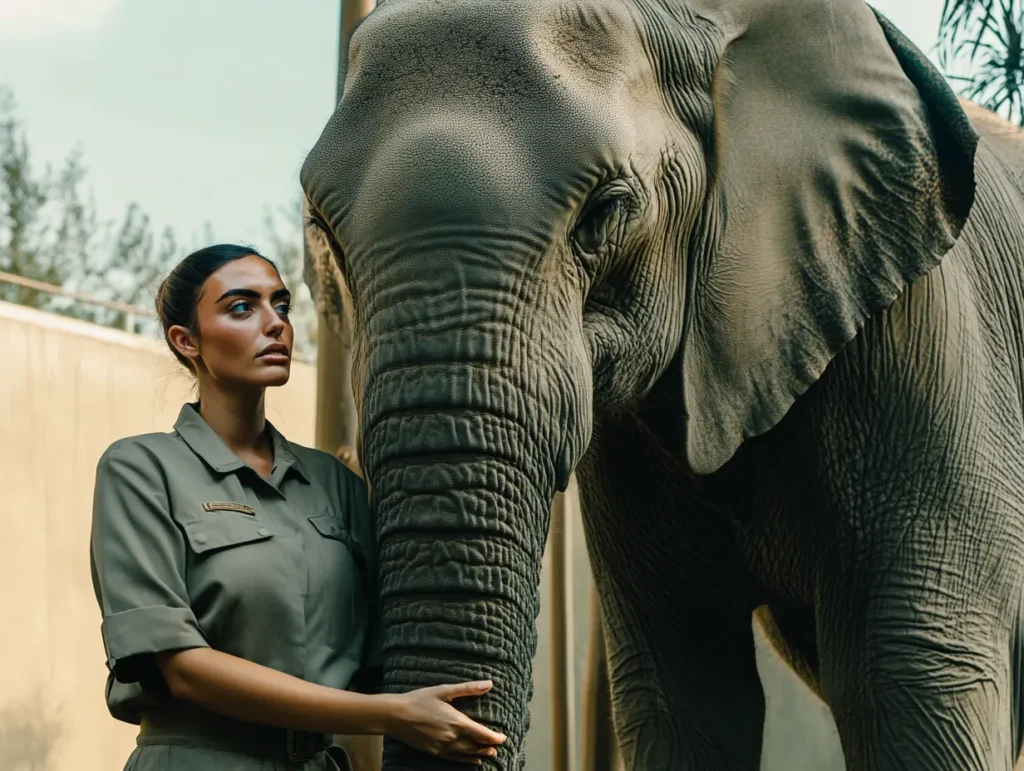
One of the younger elephants paced anxiously; another nudged a heavy log into place with quick, nervous thrusts. Dust rose around their barricade as they reinforced it with frantic, purposeful movement.
Jared’s voice drifted from behind her. “Maria… even the gibbons are screaming their heads off. And the flamingos have squeezed themselves into one corner like they saw a ghost.” Maria kept her eyes on Lila, her pulse quickening. Whatever lay under that barricaded patch of earth—Lila did not want anyone going near it.
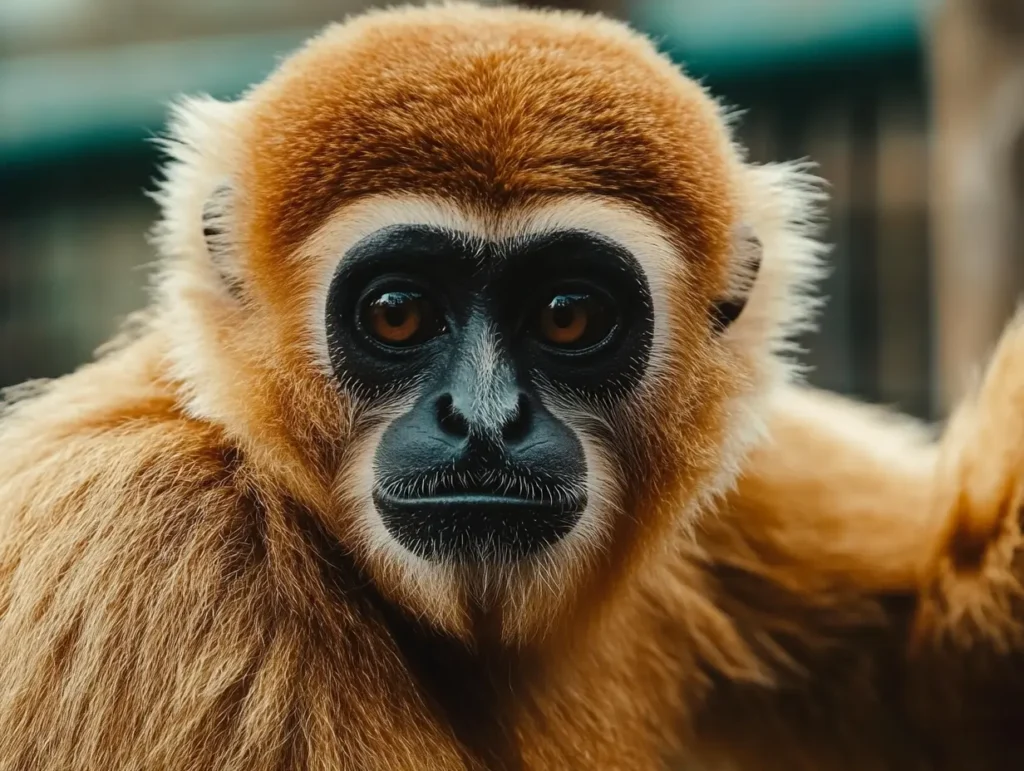
And everywhere else in the zoo, animals were unraveling too. Jared’s voice trembled behind her. “The rhinos won’t touch their hay. The gibbons refused to come down this morning. The flamingos haven’t moved from the far corner since sunrise.”
Maria froze as Lila stepped between her and the barricade, blocking her completely. The matriarch planted a foot, pressing it into the soil as if feeling for something deep beneath it. “Okay,” Maria whispered, heart pounding. “You don’t want me near that spot.”
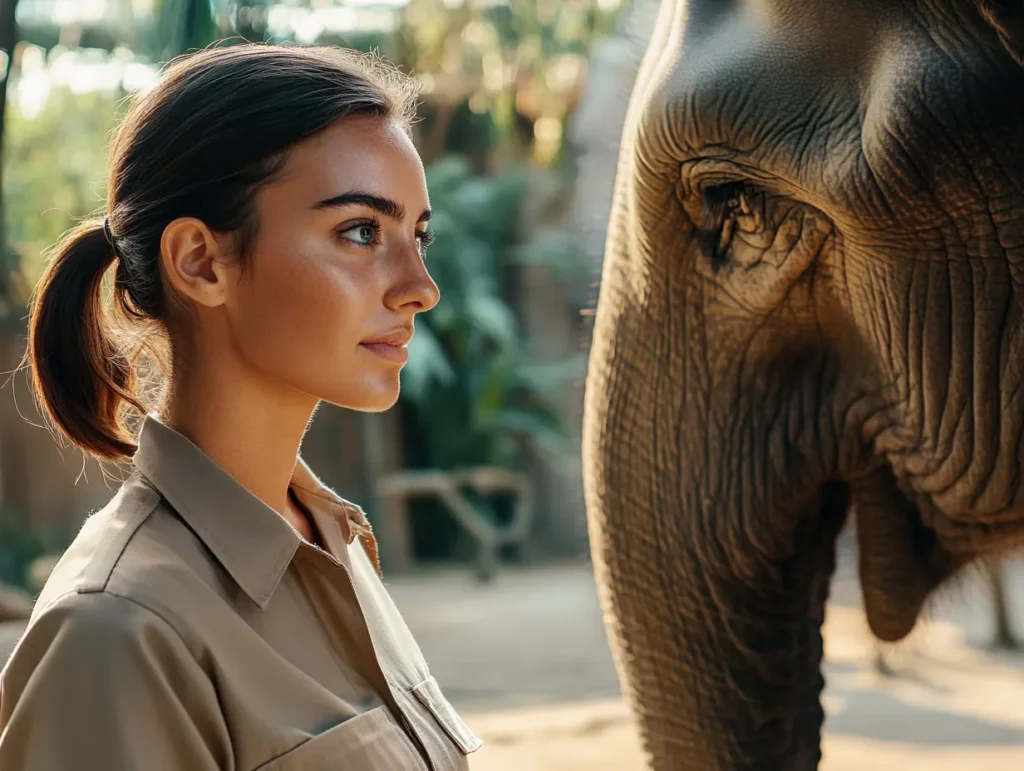
Lila’s head lowered, and she let out a rumble so deep it vibrated through Maria’s ribs, a warning from an animal who had sensed something long before any human would. Maria’s chest tightened.
“I need to get the rest of the team here,” she whispered. “Something’s wrong, really wrong.” She didn’t know what. She didn’t know why. But she knew one thing: The elephants had already decided they weren’t waiting to find out.
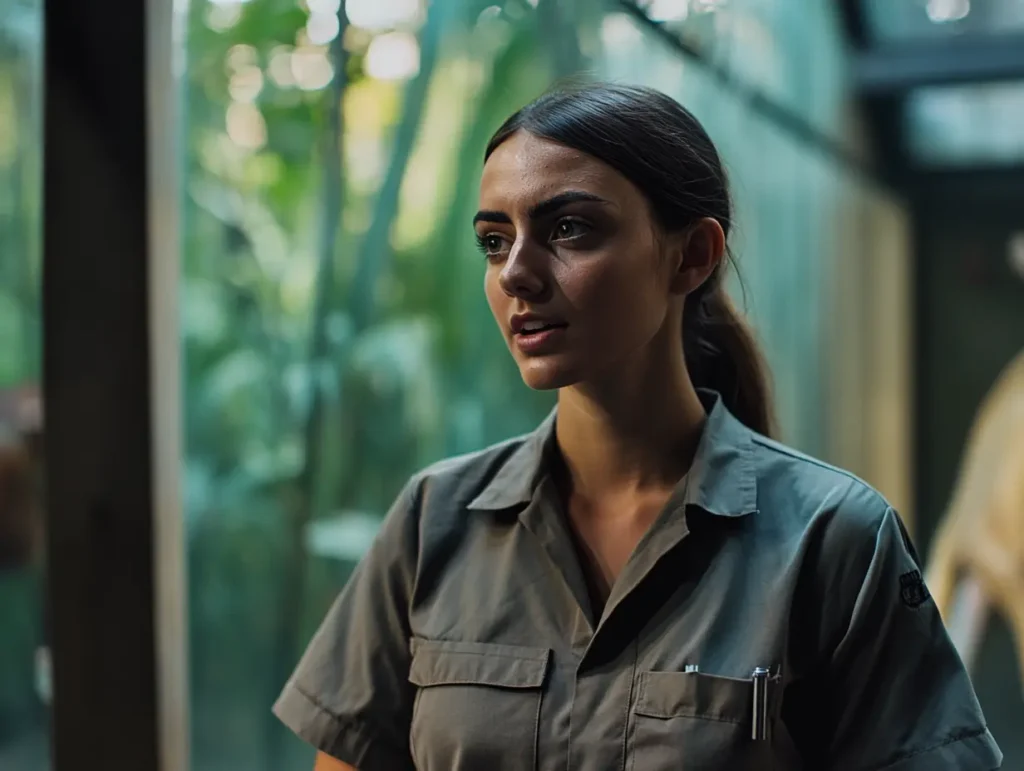
Maria didn’t leave the enclosure until the rest of the senior staff arrived, some half-awake and disheveled, others already pale from what they’d heard over the radio. They gathered in the cramped operations room overlooking the elephant habitat, the table cluttered with paperwork, radios, and half-drunk cups of coffee.
Jared closed the blinds halfway, as if shielding the room from the chaos outside. “Alright,” he said, rubbing his temples. “Let’s talk. What are we dealing with?” Maria exhaled slowly. “This started yesterday.
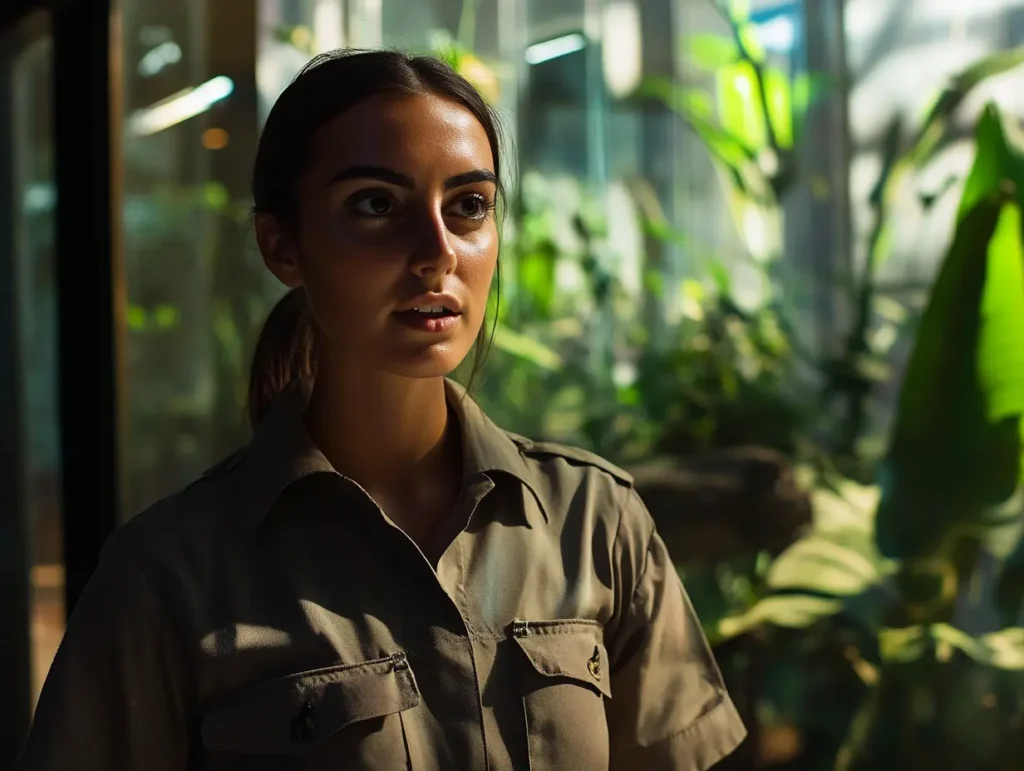
Lila did it first, standing in that corner, staring at the ground like she was waiting for something. Now the whole herd is barricading it. And it’s not random. They’re choosing the heaviest objects and stacking them deliberately.”
“Could it be territorial?” one keeper asked. “They’ve lived here for fourteen years,” Maria replied. “Territorial behavior doesn’t start overnight.” Another keeper leaned forward. “What about pests? A burrower? Snakes? We had that rat issue last spring—”
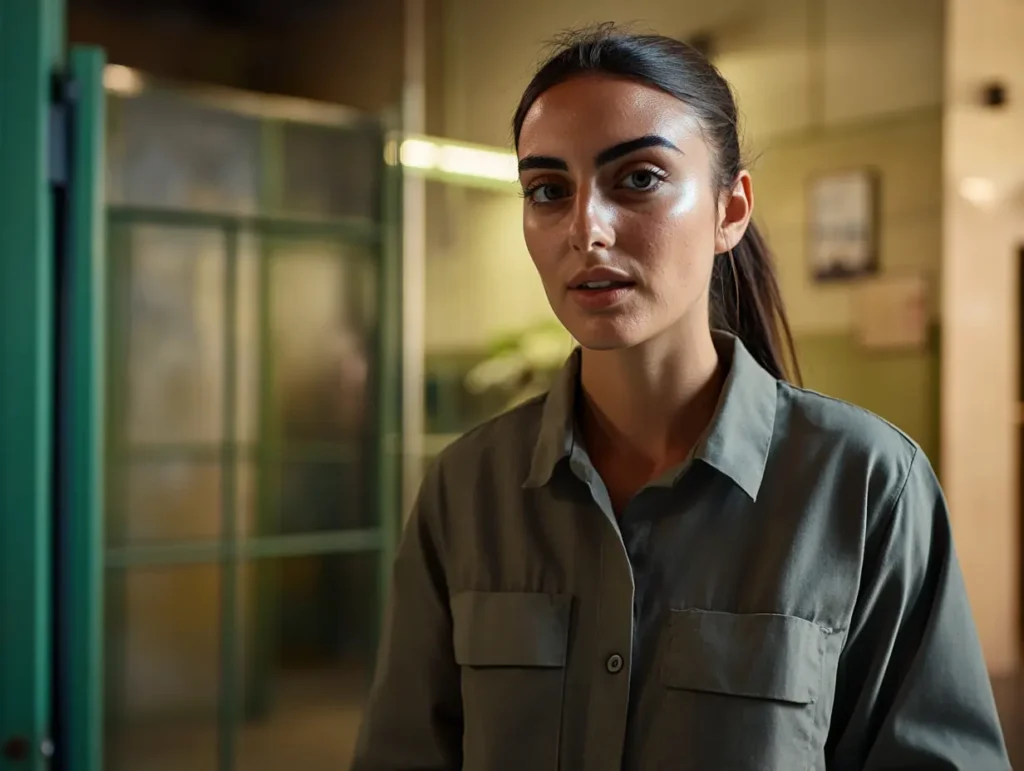
“This isn’t a rat,” Maria said sharply. “You should see them. They’re… agitated, but focused. Like they’re defending something.” A low hum vibrated the floor beneath their feet. Not loud, barely there. People paused.
Jared frowned. “Please tell me that was an air vent.” No one answered. The vibration faded as quickly as it had come. Maria steadied her breathing. “It’s not just the elephants. Rhinos are restless. Gibbons won’t come down.
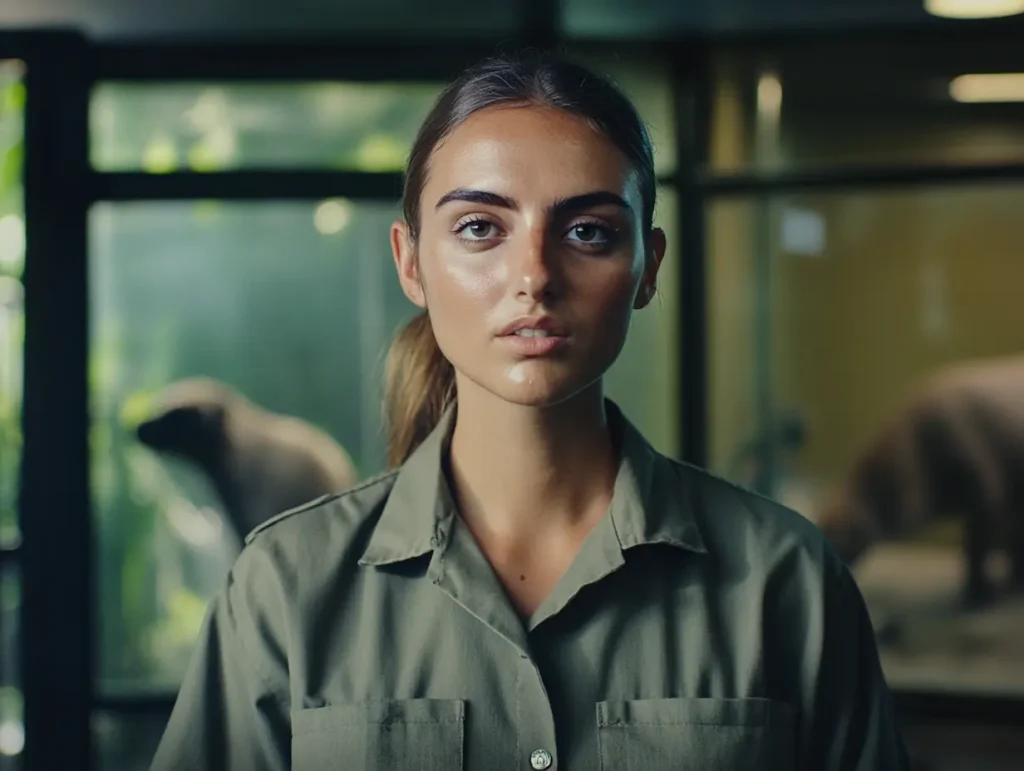
Flamingos huddled like there’s a storm coming. I don’t think this is species-specific.” A chilling silence settled over the room. The zoo director, a woman named Dr. Harper, finally broke it. “We have two priorities. One: keep the animals safe.
Two: keep the visitors safe. If something is affecting multiple enclosures, we can’t ignore it.” “What are you suggesting?” someone asked. “Evacuating guests until further notice.” A murmur rippled through the room, surprise, fear, disbelief. “That’s… extreme,” Jared said.
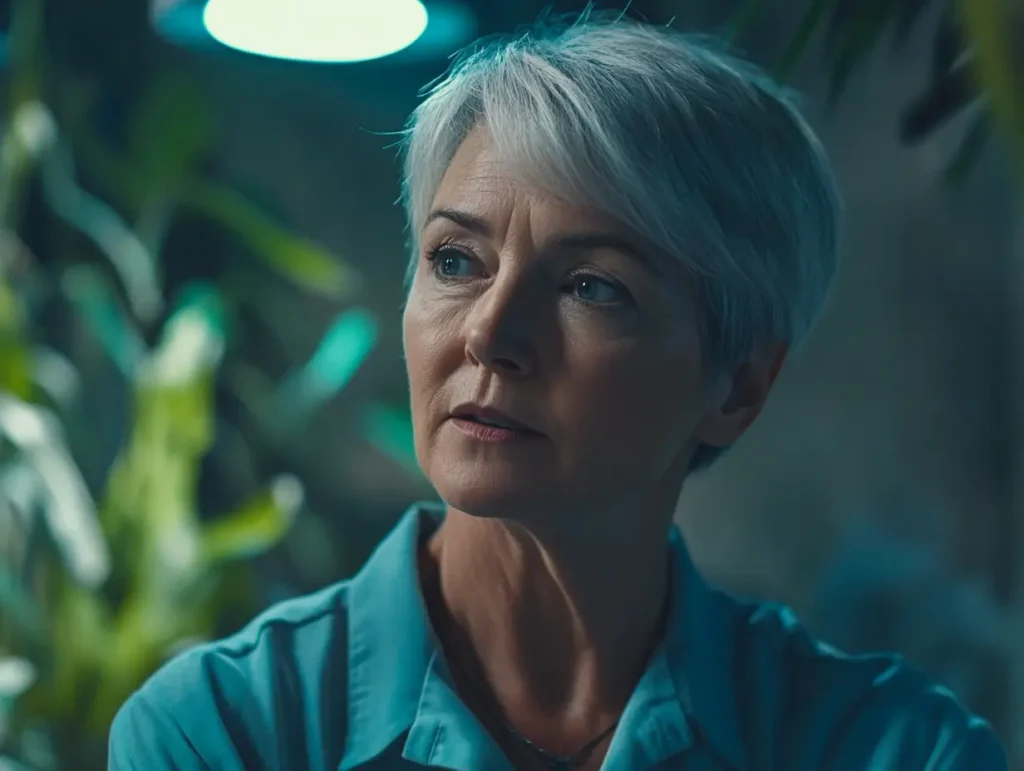
“It’s necessary,” Dr. Harper replied. “If the animals know something we don’t, I won’t gamble with lives.” Maria swallowed. “I agree. But there’s another problem. The elephants won’t let us near that corner. If we want to investigate, we’ll have to distract them—or move them.”
“Move them?” a keeper repeated. “We’re talking about seven elephants, all agitated.” Dr. Harper folded her arms. “Then we need sedation as a backup.” Maria stiffened. “No. Sedating a distressed herd is dangerous. They could injure themselves—or each other—when they go down.” “Then give me an alternative.”
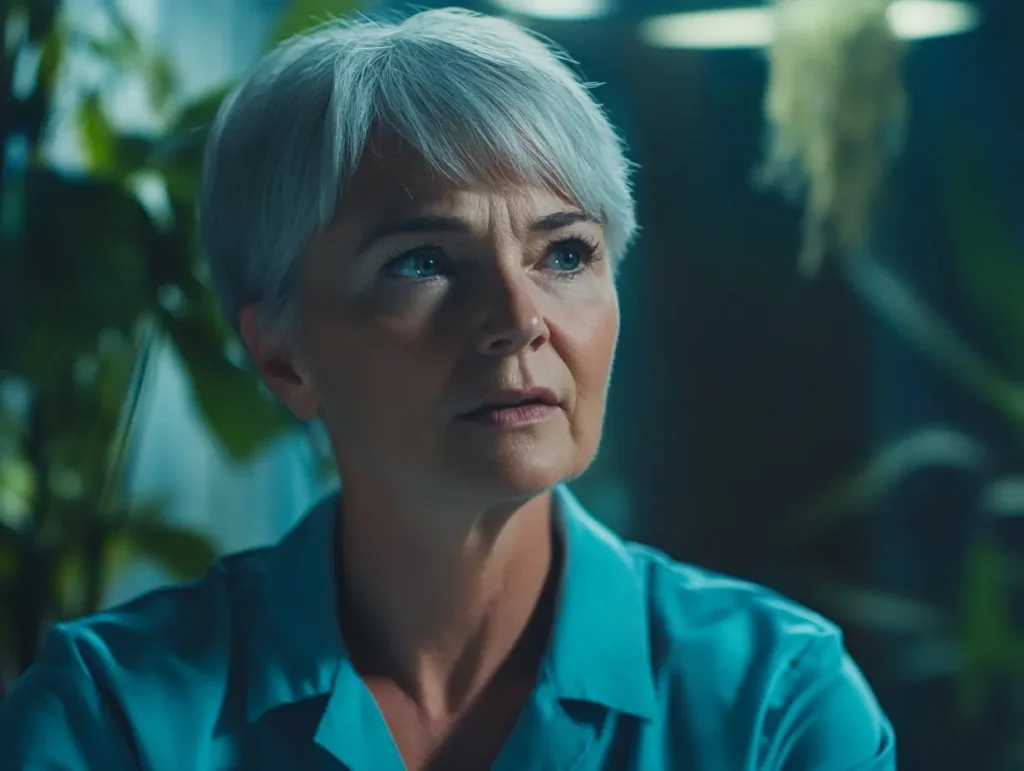
Maria hesitated. The truth was, she had none. The elephants had made their stance clear. Whatever was happening underground was real to them… and invisible to everyone else. A sudden metallic crash echoed from outside the operations room, so loud it rattled the windows. Several staff jumped to their feet.
“What was that?” Jared grabbed his radio. “Control, report.” Static. Then: “The elephants are pushing the logs again. Harder than before. The barricade’s twice as big.” Maria’s heart slammed against her ribs. “They’re still building?” she whispered.
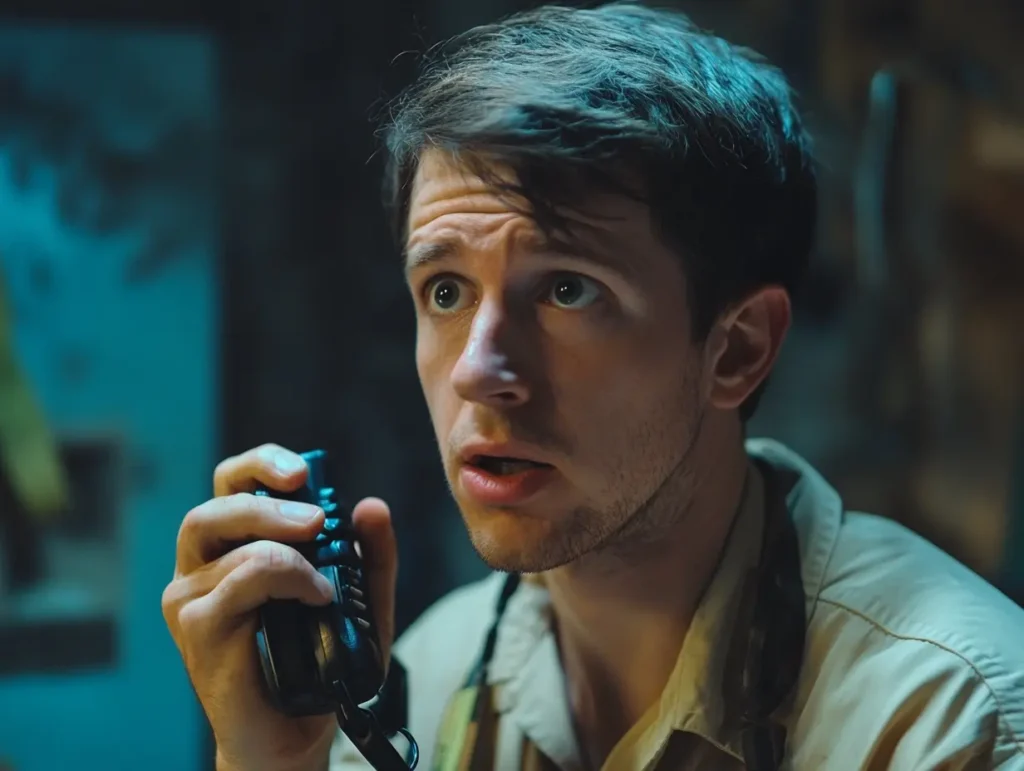
Jared nodded grimly. “More than building. It’s like they’re trying to seal something.” Dr. Harper stood. “Alright. Shut down visitor access. Keepers only. And Maria—” Maria turned. “Stay with them. Don’t let anyone go near that corner until we know what we’re dealing with.” Maria nodded, a heavy dread sinking into her stomach.
Something was happening beneath the zoo. The elephants felt it. And whatever it was… it was getting worse. By noon, the zoo had been quietly closed to visitors. Staff gathered behind temporary barriers, murmuring anxiously as a line of utility trucks rolled into the service lot, white vans marked with hazard symbols, the kind used by maintenance crews.
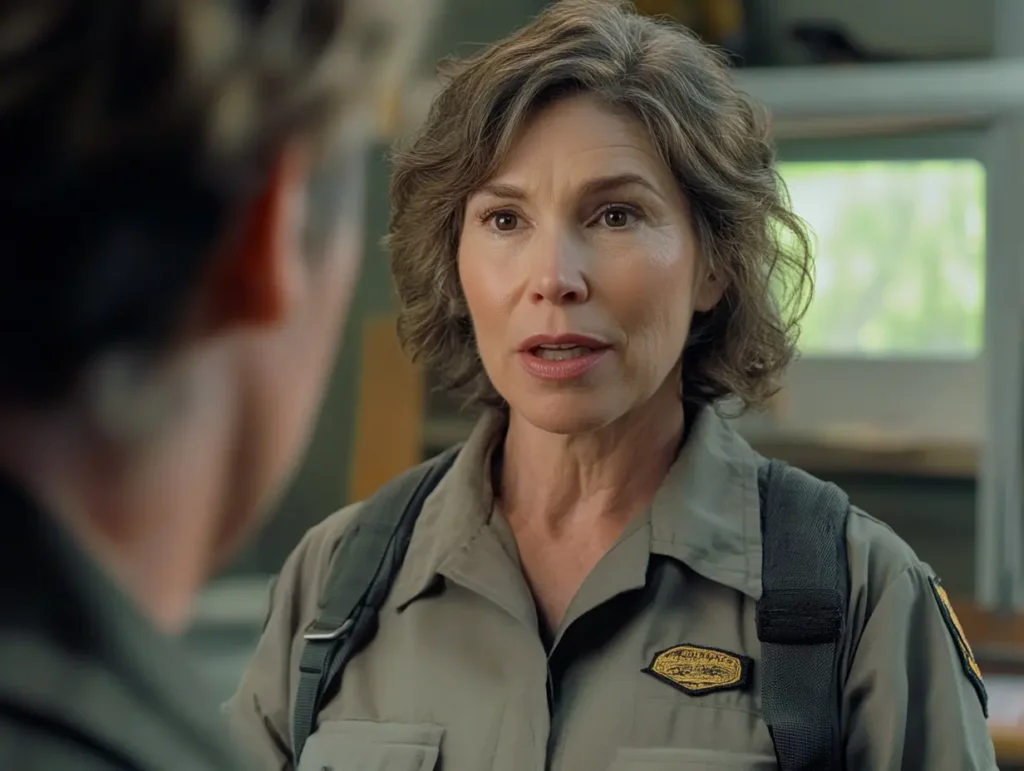
Their arrival didn’t scream disaster, but it definitely wasn’t routine. Maria met the engineering team at the gate, her pulse still running hot from the chaos of the morning. “You’re the crew they called?” she asked.
Keenan, the lead tech, nodded. “We were told your elephants are reacting to something in the ground. We’re here to check for structural issues or any buried utilities.” He didn’t laugh. He didn’t dismiss her. That alone steadied her a little.
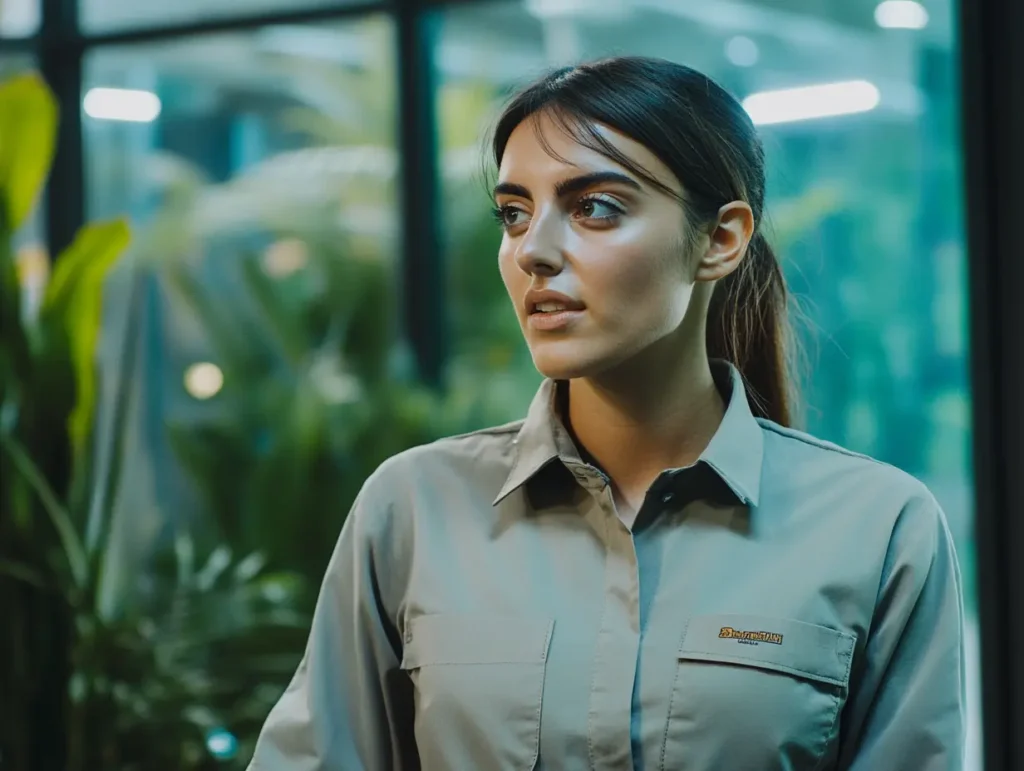
“They’ve barricaded one corner,” Maria said, pointing. “Logs, stones—anything they could move. They won’t leave it alone.” Keenan glanced into the enclosure. The elephants stood rigidly around the mound they’d built, ears angled sharply toward the soil.
“Animals notice things we miss,” he murmured. “Let’s run a scan.” His team unloaded the ground-scanner. Its wheels hummed softly as they rolled it toward the barricaded corner. The machine crackled to life, sending pulses into the soil.
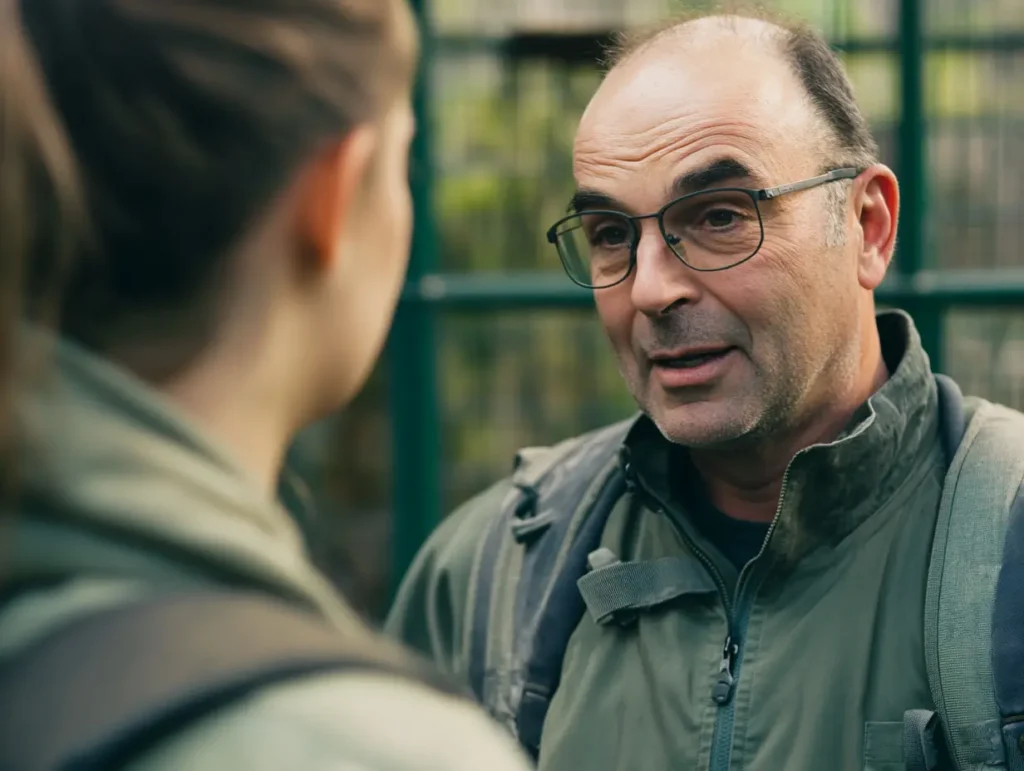
Almost instantly, Lila lifted her head and let out a low, warning rumble. Maria swallowed. “They don’t like that.” “We’re barely using any force,” Keenan said. The scanner rolled forward again. The monitor flickered. Then a red distortion bloomed across the grid. Keenan leaned in, frowning.
“There’s a void down there. Not natural.” “Meaning what?” Maria whispered. “Meaning something man-made,” he said. “A pipe. A big one.” Before she could respond, a thin, metallic ping sounded through the ground, the kind of sound that didn’t belong in soil.

The elephants erupted. Trumpets tore through the air. They slammed their feet down, pacing and circling the barricade with frantic precision. Keenan backed up fast. “We’re stopping the dig. That sound wasn’t good.” One tech crouched and sniffed the air. His expression collapsed.
“Do you smell that?” Maria caught it next: faint, chemical, metallic, wrong. Keenan stiffened. “Gas.” He didn’t hesitate. “We need the utility emergency team. Now.” The gas specialists arrived within minutes: white trucks, heavy boots, no wasted movement.
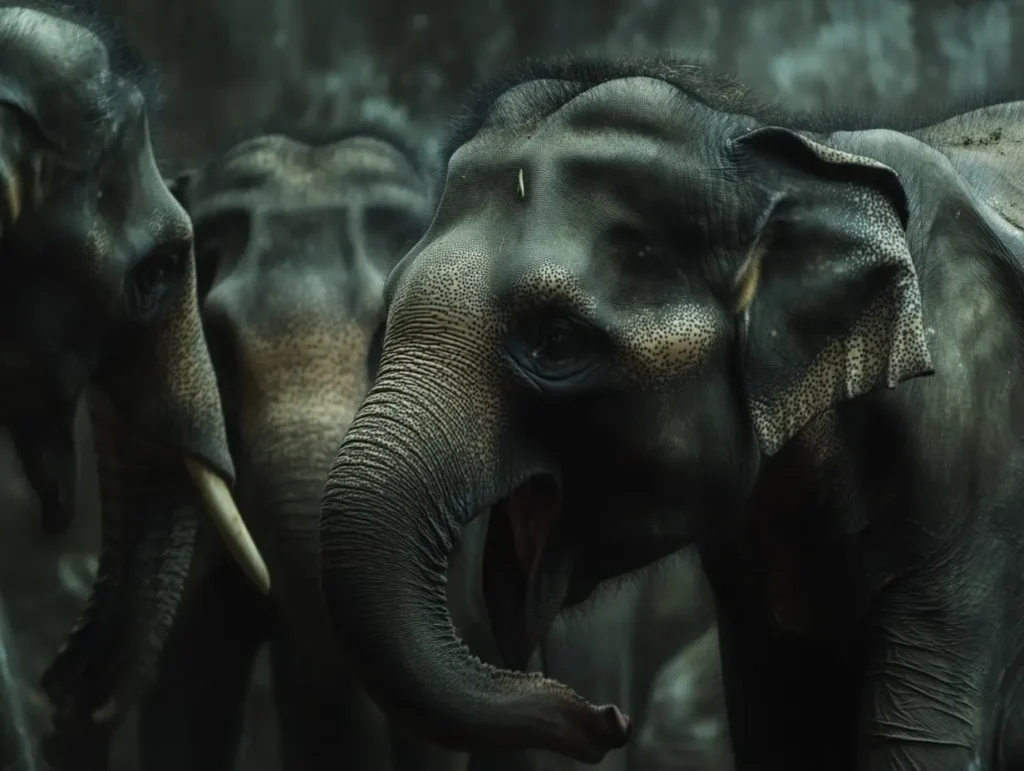
Dr. Felicia Navarro stepped out first. “Show me the site,” she said. Maria led her to the corner. Navarro crouched, placed a hand to the ground, and froze. “That is a high-pressure line,” she said quietly. “And it’s not supposed to be vibrating like that.”
Maria’s breath shortened. “Could it rupture?” “If pressure keeps rising? Yes.” A sharp groan rumbled beneath them—metal under strain. The elephants trumpeted again, backing away from the corner and forming a tight circle around the calves.
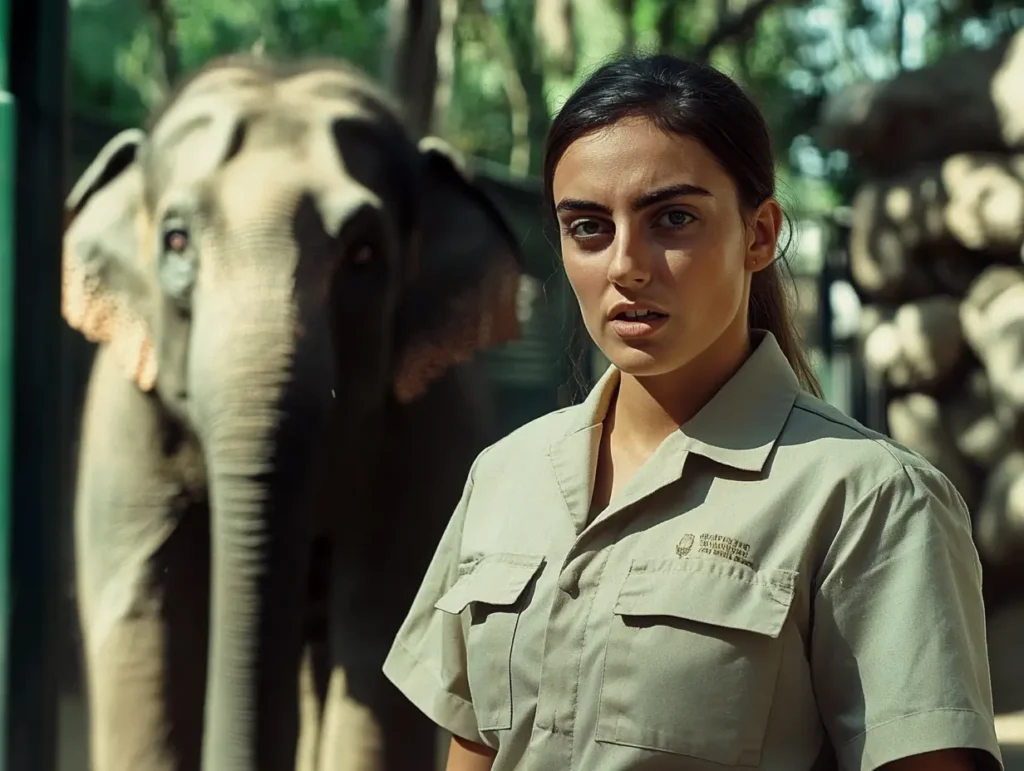
Navarro didn’t waste a second. She shouted to her team: “Expose the pipe—carefully. No mechanical tools. Hand-dig only.” Workers leapt into action, soil flying as they dug with shovels and hand trowels. Every few seconds, Maria felt a faint tremor—just enough to raise goosebumps.
A sudden blast of warm, chemical-tinged air escaped from the pit. “There it is!” a worker yelled. The pipe appeared—thick steel, slick with condensation, vibrating rapidly like a living thing trying to tear itself apart.
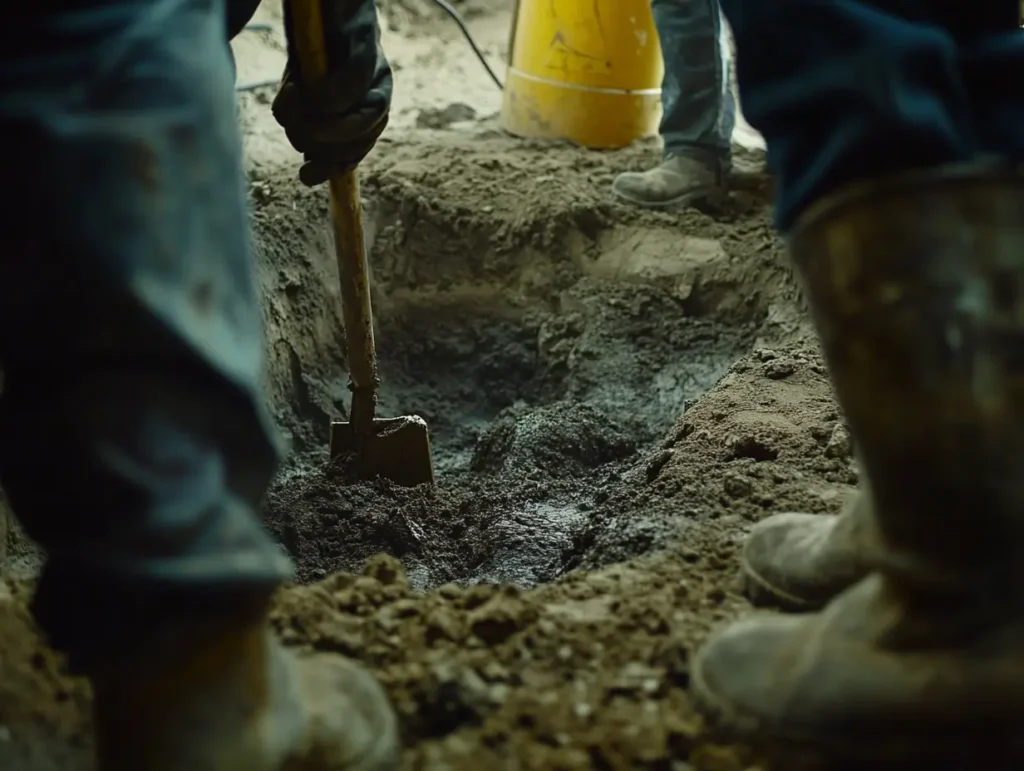
Navarro leaned over it. Her voice was low, urgent. “This pressure is off the charts. If this seam fails, it’ll blow half the enclosure open.” Maria’s knees weakened. “But—what caused it?” “Malfunction upstream,” Navarro said. “A blocked valve. Pressure rerouted here. If it weren’t for your elephants—this wouldn’t have been found until it was too late.”
A shrill alarm sounded from one of the handheld gauges. “Pressure spike!” someone shouted. “It’s climbing again!” Navarro swore under her breath. “We need a manual release!” Her team scrambled, fitting clamps and wrenches onto the pipe. The metal groaned louder—bending, shifting, complaining under the mounting force. Another spike.Higher. Higher.
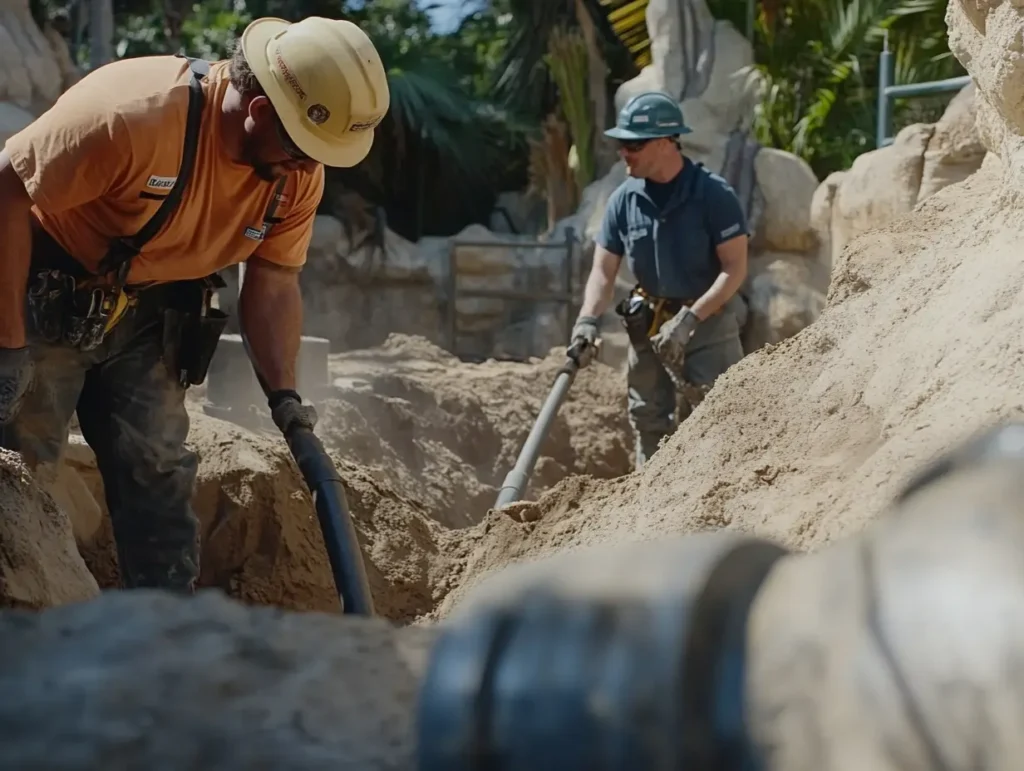
Lila bellowed and stomped, as if urging them to go faster. “Valve ready!” a tech cried. “Release it!” Navarro yelled. There was a violent hiss, followed by a roar of escaping pressure—a geyser of invisible air blasting through the safety hose they’d attached.
The ground shook. Dust blew out of the pit. Everyone shielded their faces. The hiss slowed… Then softened… Then faded. Silence fell. Navarro checked the gauges—twice—before finally exhaling. “Pressure dropping,” she said. “We’re safe.”
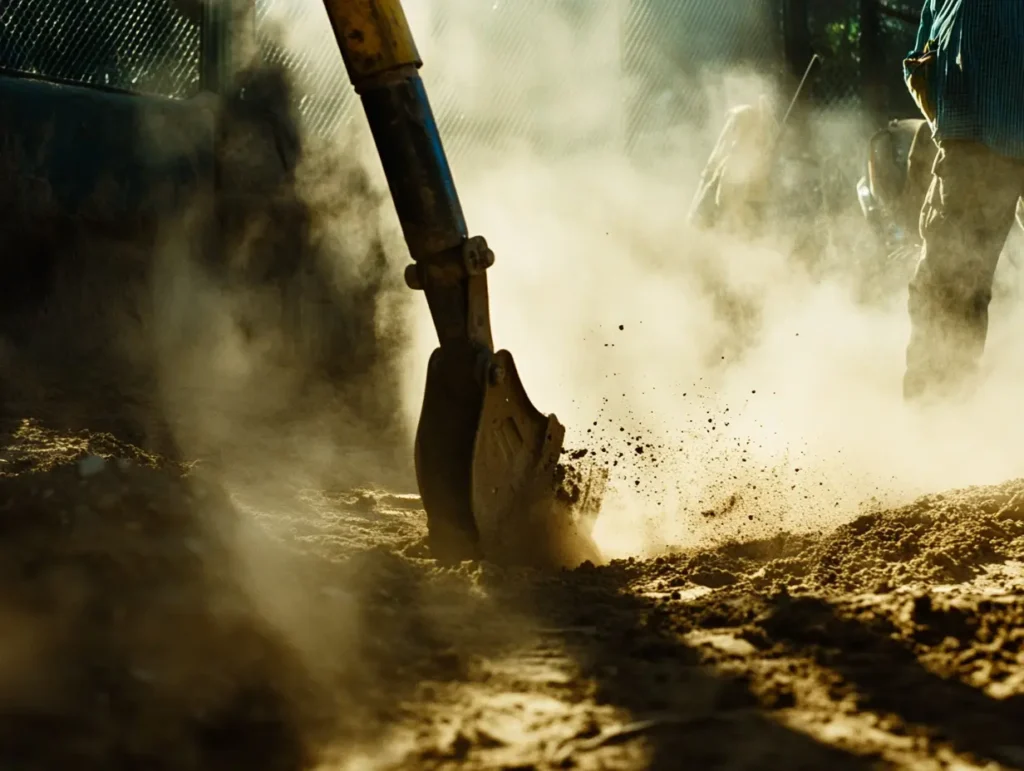
Maria felt her muscles give way in relief. She grabbed the railing to steady herself. Inside the enclosure, the elephants stilled. Lila stepped forward and touched the mound they had built—just once—then lowered her head in calm acknowledgment. The danger was over.
They knew it immediately. Navarro climbed out of the pit and joined Maria at the railing. “We were lucky,” she said. “A few more hours, maybe less, and that pipe would’ve blown. And it’s connected to the biogas plant across the road—that’s a lot of compressed fuel.”
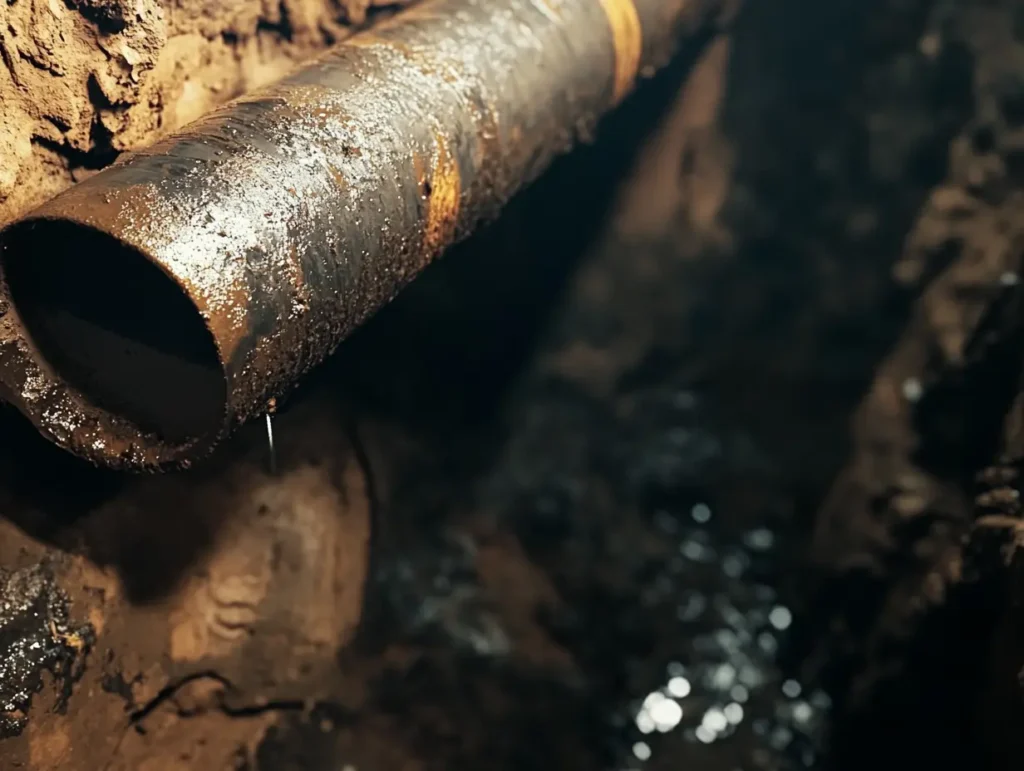
Maria stared at the elephants, her heart softening. “They knew before anyone else.” “They felt the vibrations,” Navarro said. “Animals like elephants? Their feet are built for sensing seismic shifts. They detected the pressure long before our sensors would have.”
She paused, watching the herd settling into a gentle rest circle. “You should be proud of them,” Navarro added. “They saved people today. A lot of them.” Maria nodded slowly, emotion tightening her throat. “I will never doubt them again.”
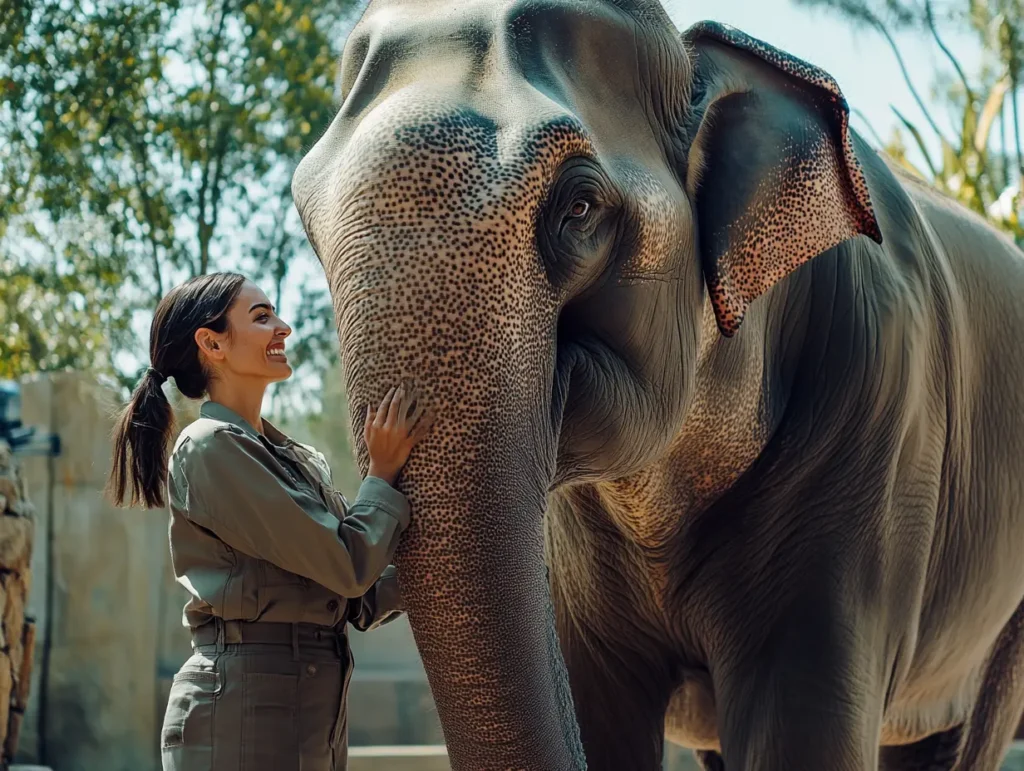
Sunlight broke through the clouds, washing the enclosure in warm gold. The elephants relaxed completely—ears loose, bodies calm, rumbling softly to one another. Not afraid. Not warning. At peace. And as Maria watched them, a quiet realization rooted itself deeply:
They hadn’t been building a barricade. They had been trying to protect everyone— the only way they knew how. The world’s oldest instincts had saved the zoo long before any human understood the danger beneath their feet.
